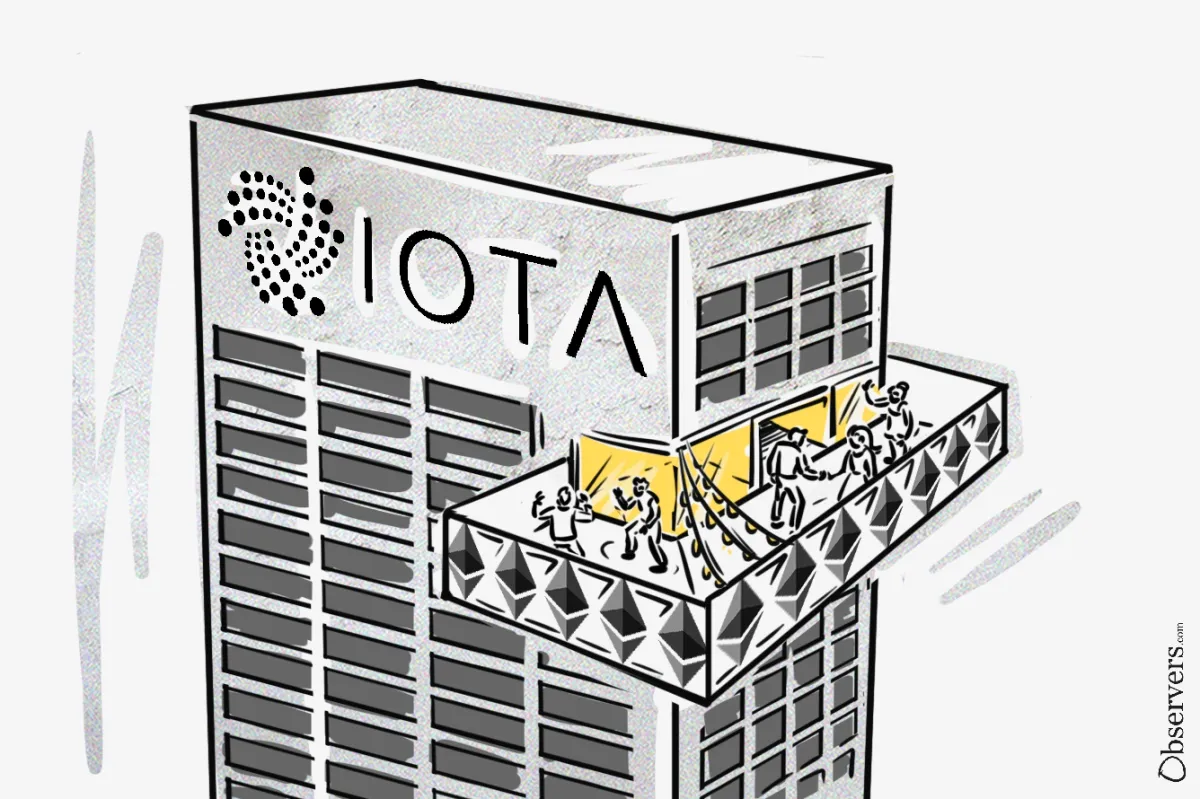
IOTA Foundation is opening its ecosystem to retail investors by supporting initiatives that use Web3 tools to improve real-world enterprise processes and systems.
On July 25, the German entity elected the finalists of the IOTA Tenity RWA Accelerator Program, which was launched earlier this year in partnership with startup incubator Tenity in Singapore.
The six selected projects will be granted $50,000 plus business guidance to develop products for the recently launched fully compatible Ethereum Virtual Machine (EVM) layer-two solution.
IOTA's New Layer-two
Since its launch in 2015, IOTA has focused on building enterprise-level solutions. They have worked with companies in different markets, governments, major non-profit institutions, and humanitarian organizations to develop Web3 tools that solve certification credentials problems, supply chain inefficiencies, data processing blockages, and more.
Today, the protocol has been adopted primarily in trade and logistics, followed by digital identity and tokenization.
While the foundation plans to continue developing projects for the enterprise industry, eventually having "all business interactions on-chain," it is now looking to open up its ecosystem to retail investors.
In an interview with South Korean Professor Jo earlier this month, IOTA‘S co-founder Dominik Schiener said the protocol was "repositioning itself as a more exciting network for Degen as well and for the Web3 ecosystem.
On June 4, IOTA launched an Ethereum Virtual Machine (EVM) compatible Layer 2 solution, powering the ecosystem with smart-contract programmability and clearing the way to change its current centralized proof-of-authority consensus mechanism. The team considers it a key achievement of the Iota 2.0 roadmap, a plan to make the protocol's architecture holistic and open to everyone.
Six Finalists, One Goal: Create Real World Value
The accelerator program is embedded in IOTA‘s coming of retail age, with all six projects selected targeting individual users.
The initiatives chosen also have a clear focus on improving real-world processes through tokenization solutions that increase the liquidity of the markets where they operate and of Web3.
Qiro Finance has developed a robust credit underwriting infrastructure to power a private credit marketplace that connects FinTech asset originators looking for cost-effective finance with on-chain investors seeking to maximize their yields.
BlackFrog provides pre-financing to small-scale miners who lack access to international financial markets and, by tokenizing their assets, generates yields for retail investors who want to enter the critical minerals market.
InvoiceMate has developed an infrastructure to transform traditional invoices into RWA tokens, enabling users to access on-chain private credit based on their invoices.
The Real LifeStyle is experimenting with a combination of home subscription living and tokenizing a portfolio of properties to address the global issue of unaffordable and inaccessible homeownership.
Orobo is working on improving transparency and capital efficiency in the circular economy with a platform that tracks the value produced by sustainability-focused enterprises. The project incorporates this value into financing and reporting products.
On the digital identity front, the Estonian-based finalist Auvo Digital is tackling occupational and certification fraud with a no-code identity management platform that makes managing compliance and verifiable credential standards simple and cost-effective.
The finalists will showcase their projects to investors in Singapore during Demo Day at Token2049 in September. Their projects will join the 60 or so dApps already part of IOTA‘s retail-focused Layer 2.
We can currently observe a trend where projects claiming to be technologically superior to EVM are, it turns out, investing in Layer 2 EVM solutions to tap into Ethereum's ecosystem. Two weeks ago Telegram's sister TON network launched its EVM Layer 2 to attract the blooming community of the Ethereum blockchain. The community is important for projects in any field, especially when it relates to moneytech, since money is a purely social construct.

